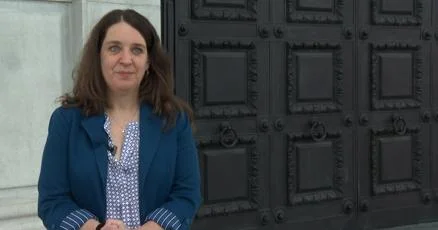
Funding Freeze Threatens Access To Vital Family Planning Services In The U.S.
In a troubling development for reproductive health in the United States, recent actions by the Trump administration to freeze nearly $66 million in Title X funding have left clinics across the nation facing potential closure. Title X, the largest federal family planning program, provides critical services such as contraception, cancer screenings, and STI tests to millions of individuals, many of whom rely on these clinics as their primary source of healthcare.
As of March 31, the Department of Health and Human Services (HHS) announced the withholding of funds from 16 Title X providers, citing the need for compliance reviews regarding compliance with federal civil rights laws and the administration’s restrictive immigration policies. This move has caused alarm among health leaders and advocacy groups about its politically motivated nature, potentially jeopardizing healthcare access for approximately 846,000 patients across 23 states.
According to Clare Coleman, President and CEO of the National Family Planning and Reproductive Health Association, “This Title X money is life-saving for folks living in these states, and now there may be no place for them to turn inside their own state lines.” Indeed, for many, these clinics are the only option for accessible reproductive health services. States like Mississippi and Utah, where reproductive health services are already under siege due to existing restrictions and bans on abortion, are particularly hard-hit.
One particularly telling story comes from Missouri, where the Missouri Family Health Council was set to distribute a significant portion of the frozen funds to its 52 clinics. Executive Director Michelle Trupiano expressed the gravity of the situation, stating, “Without this funding, if it goes much longer, we are at a critical point where we see health centers that are going to be closing their doors.” She emphasized that health centers are already operating on razor-thin budgets, making the funding freeze catastrophic.
Furthermore, the freeze does not discriminate between states with more progressive reproductive laws and those without; clinics in Democratic-led states such as California and Maine are equally affected, demonstrating a widespread lack of funding that transcends political boundaries. For example, Rep. Judy Chu of California highlighted this concerning trend, asserting that despite her state’s strong protections for reproductive rights, the undermining of reproductive health through funding cuts presents a formidable obstacle.
Amidst these challenges, some clinics are beginning to scramble for alternatives, including changing their service models and potentially charging for care that was formerly provided for free. As Trupiano argued, “Once a clinic lays off staff or closes their doors, it’s almost impossible to open them again.” This reallocation of resources may lead to stark increases in healthcare deserts, denying vulnerable populations access to necessary reproductive health services.
As further fallout from this funding freeze remains to be seen, health advocates warn of the potential for increased healthcare disparities across the nation. Many voices in the reproductive health community are calling for immediate reinstatement of Title X funds, urging lawmakers to recognize and act on the detrimental impact that funding cuts will have on their constituents’ health and wellbeing.
The looming question remains: how will states and the federal government respond to this crisis impacting millions? As pressure mounts on lawmakers for action, the urgency for dialogue increases. In the meantime, health centers across the country prepare for the worst, bracing for long-term consequences.